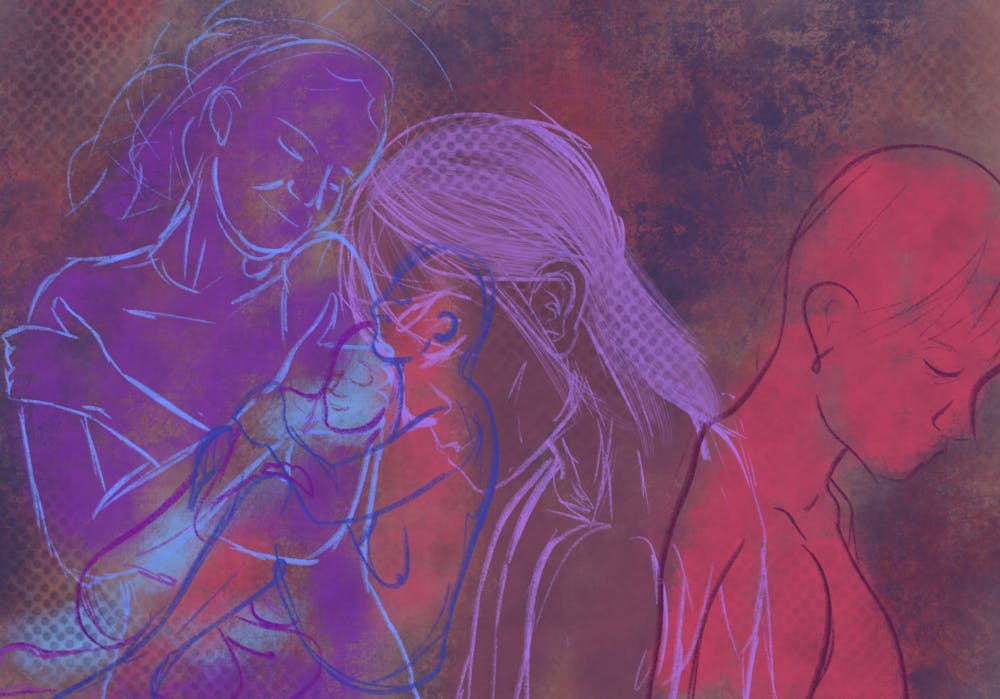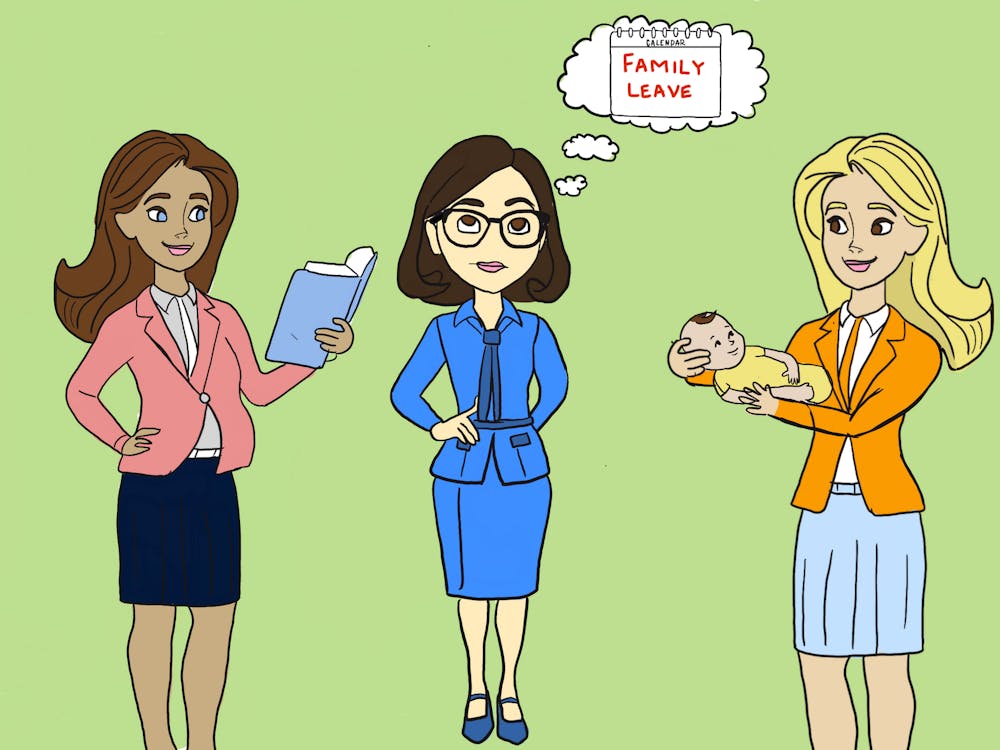Most of us enter romantic, exclusive relationships hoping to find love — or at least some form of it. You might dream of finding someone who understands you perfectly, buys you flowers unprompted or gives you their jacket when you’re cold, even if they are too. But in the honeymoon phase, you may run into a problem — wondering the right time to say “I love you.”
Those three words can hold a terrifying significance. In a budding relationship, the thought of telling someone you love them comes with the fear that your emotions will go unreturned — you picture worst-case scenarios, imagine unrequited feelings and second-guess yourself. You worry about moving too fast or two slow, or whether it’s more appropriate to say “I love you” at the door or simply blurt it out over dinner. Even in long-term relationships, you may still wonder what it means to say the full declaration aloud.
The truth is, there is no “right” time to say “I love you.” Love, as I perceive it, is far from stagnant. It emerges at different times and ways for every person. But when I picture love, I don’t just wonder about the “when.” I wonder about its weight.
Love can be a physical feeling — it’s a fluttering in your stomach or a tight feeling in your chest. It can be suffocating or freeing. It can be a burden or a blanket on your shoulders.
All of this begs the question — how do you know if you love someone? We might think we know love, but as young adults with underdeveloped frontal cortices, we don't always make the best decisions when it comes to romance. High school relationships fall apart in the first semester of college. People split ways to pursue the so-called “college experience,” partying their way into situationships and falling into the rabbit hole of hookup culture known to pervade colleges. We find ourselves in a frenzy of people colliding and pulling apart, treating love like a fleeting thing, easily blown away.
To confound matters more, with social media, we have started to measure love in the number of likes and comments we get rather than in the emotions we feel. We see couples “launch” their relationship on Instagram with strategically planned dates or extravagant displays of affection. We idolize superficial, picture-perfect depictions of romance and settle for diluted variations of love with comments that read “love ya” or “luv u.” Social media warps our perception of love, making us believe love can be shared through the simple click of a button.
Neither a fling nor an online post can capture real love. You can’t stage true love, now matter how fancy a dinner date is. The significance of love consists of more than showering someone in gifts — it’s about surprising someone in small ways. I find that love hides itself in tiny nooks and crannies. In a song you once listened to together. On a park bench where you once ate side by side.
While grand gestures can’t fully describe the weight of love, that doesn’t mean love has to be small. Love can, and should, feel heavy. Love is having difficult conversations, expressing frustrations and being willing to compromise. You wrestle with love, but you cannot force it.
To be struck by Cupid’s arrow can be painful at times. In “Notes from the Underground,” Fyodor Dostoevsky writes, “To love is to suffer and there can be no love otherwise.” When I read this, I don’t think Dostoevsky is saying you can’t experience love until you experience suffering. Rather, I think of how saying “I love you” is to accept a state of vulnerability. To love is to release a secret you carry. It’s to hold out your hands and accept someone else’s love and any pain that follows.
To say “I love you” is not simply a declaration of your emotions. It’s a decision to yourself that you are prepared to take on the hardships that may arise in a relationship, a promise that the joys of loving someone outweigh any challenges that may, and will arise.
As young adults, we may wonder if we are truly capable of experiencing and proclaiming love. Speaking as a young, self-diagnosed romantic, I know my adolescent ideas of affection are far from the epitome of true love — I don’t expect my words to become a Dostoevsky novel any time soon. However, we all feel the weight of love at some point, no matter how young, inexperienced or scared we may be. We learn how to hold onto love and, simultaneously, to let it go.
I believe the phrase “I love you” will make its way to the tip of your tongue when you know the time is right. Whether you say it aloud or not, you will inevitably come to feel the weight of love — you should allow yourself to declare this love to the person who can accept the weight of those three sacred words.







